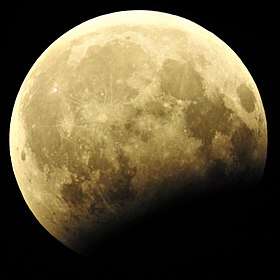July 2065 lunar eclipse
A total lunar eclipse will take place on July 17, 2065. A dramatic total eclipse lasting 1 hour and 37 minutes will plunge the full Moon into deep darkness, as it passes right through the centre of the Earth's umbral shadow. While the visual effect of a total eclipse is variable, the Moon may be stained a deep orange or red colour at maximum eclipse. This will be a great spectacle for everyone who sees it. The partial eclipse will last for 3 hours and 36 minutes in total. The moon will pass through the center of the Earth's shadow.
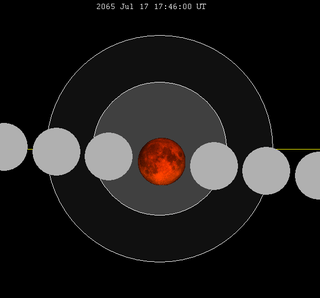
Visibility

Related lunar eclipses
Saros series
Lunar saros series 130, repeating every 18 years and 11 days, has a total of 71 lunar eclipse events including 56 umbral lunar eclipses (42 partial lunar eclipses and 14 total lunar eclipses). Solar Saros 137 interleaves with this lunar saros with an event occurring every 9 years 5 days alternating between each saros series.
| Greatest | First | |||
|---|---|---|---|---|
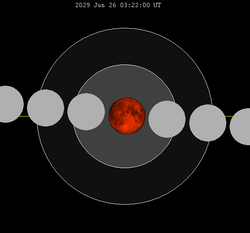 The greatest eclipse of the series will occur on 2029 Jun 26, lasting 102 minutes.[1] |
Penumbral | Partial | Total | Central |
| 1416 Jun 10 | 1560 Sep 4 | 1921 Apr 22 | 1957 May 13 | |
| Last | ||||
| Central | Total | Partial | Penumbral | |
| 2083 Jul 29 | 2155 Sep 11 | 2552 May 10 | 2678 Jul 26 | |
| 1903 Apr 12 | 1921 Apr 22 | 1939 May 3 | |||
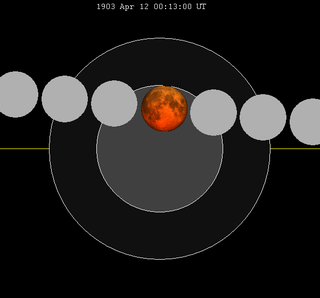 |
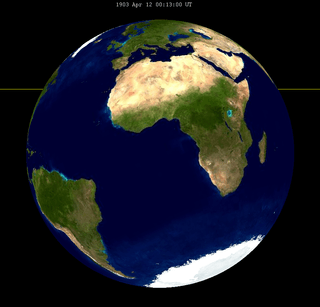 |
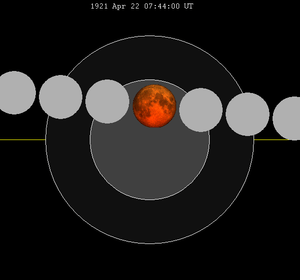 |
 |
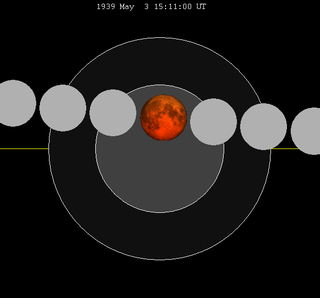 |
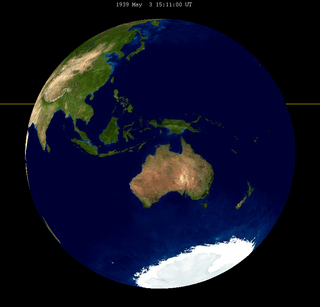 |
| 1957 May 13 | 1975 May 25 | 1993 Jun 4 | |||
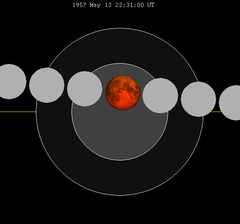 |
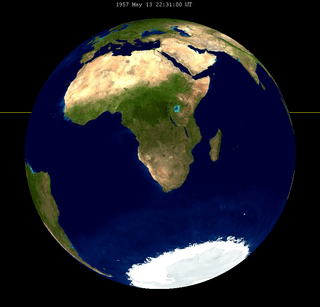 |
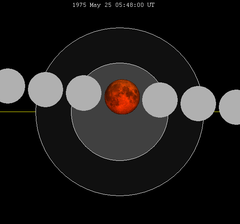 |
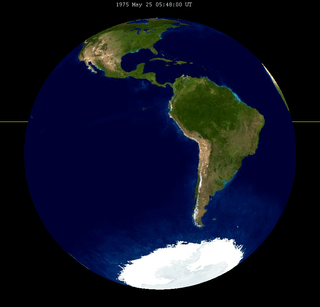 |
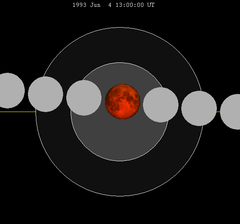 |
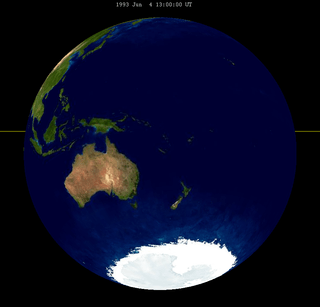 |
| 2011 Jun 15 | 2029 Jun 26 | 2047 Jul 7 | |||
 |
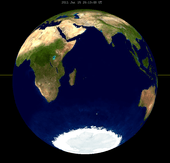 |
 |
 |
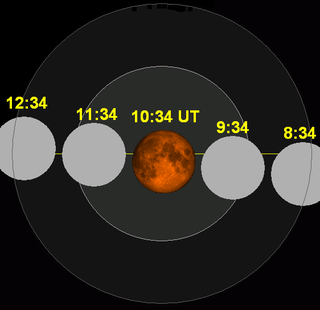 |
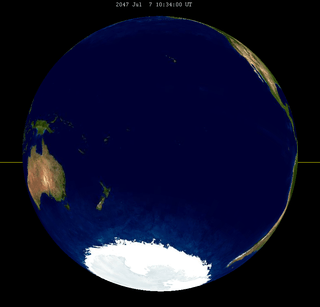 |
| 2065 Jul 17 | 2083 Jul 29 | ||||
 |
 |
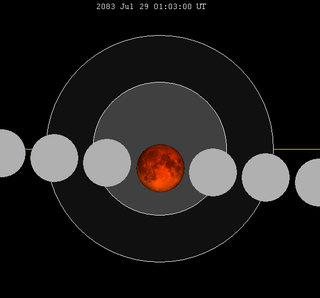 |
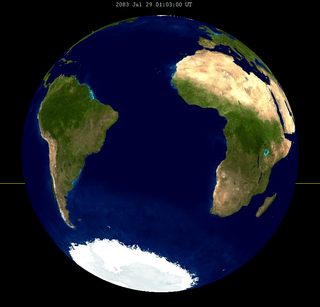 | ||
Half-Saros cycle
A lunar eclipse will be preceded and followed by solar eclipses by 9 years and 5.5 days (a half saros).[2] This lunar eclipse is related to two annular solar eclipses of Solar Saros 137.
| July 12, 2056 | July 24, 2074 |
|---|---|
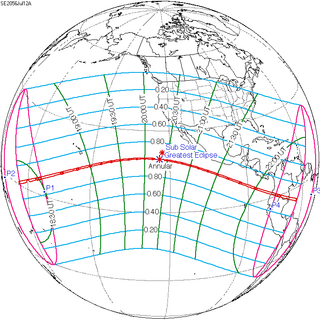 |
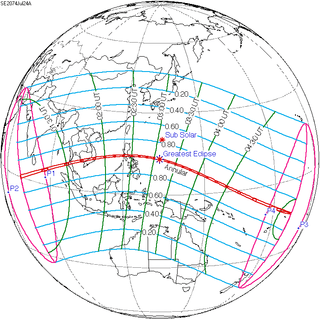 |
See also
- List of lunar eclipses
- List of 21st-century lunar eclipses
Notes
- Listing of Eclipses of cycle 130
- Mathematical Astronomy Morsels, Jean Meeus, p.110, Chapter 18, The half-saros
